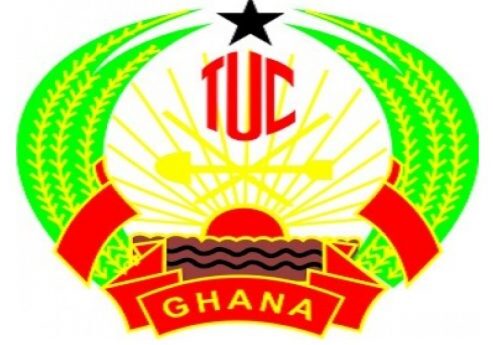By Konrad Kodjo DJAISI
The Trades Union Congress (TUC) General Council, the second highest decision-making body of the TUC, has roundly condemned the Public Utilities Regulatory Commission (PURC) for its unwarranted upward adjustment of electricity tariffs for the third quarter of this year.
PURC announced a 2.45 percent increase in electricity tariffs for the third quarter on Wednesday, June 25.
“The Congress not only condemn PURC for this unwarranted upward adjustment but more worryingly finds the process adopted unethical, unilateral and betrayal of trust means in regard to utility consumers.”
According to TUC, the Commission indicated that the quarterly adjustment of utility tariffs “tracks and incorporates changes in four (4) key variables: namely, the cedi/dollar exchange rate, inflation, electricity generation mix and cost of fuel (mainly natural gas) in the electricity tariffs”.
All previous quarterly adjustments of electricity tariffs have considered these four variables, which is consistent with the rate setting guidelines of PURC. For the third quarter tariff review, PURC unilaterally sprung a surprise by introducing two (2) additional variables into the adjustment process.
In addition to the four (4) variables that the Commission has used for all of its quarterly adjustments, including the last one it did in April 2025, the Commission has introduced a so-called “reserve capacity charge” and “cost of liquid fuel”.
Consequently, TUC calls this review a clear case of deliberately manipulating the quarterly adjustment mechanism – intended to deny workers and Ghanaians benefits accruing from the current low foreign exchange and inflation rates.
“Our calculation of this third quarter adjustment indicates that cedi appreciation against the US dollar alone should result in a significant reduction of both electricity and water tariffs,” TUC notes.
“Government has used appreciation of the cedi to compel our affiliate – Ghana Private Road Transport Union (GPRTU) – to reduce transport fares, yet when it got the opportunity it has failed to demonstrate the same measure of fairness in its tariff decisions.
“In a difficult year during which the president directly appealed for workers to accept a wage increase of 10% at a time when inflation was over 23%, the least we had expected was a near 15% increase in electricity tariff for the first and second quarters – and another unwarranted increase in the third quarter when the numbers pointed to a significant reduction,” TUC states.
Even the Bank of Ghana was expecting a downward adjustment in utility tariffs. In response to a question about the potential impact of tariff adjustment on the bank’s end-year inflation target, the Governor had this to say: “Utility tariffs are significantly influenced by exchange rate movements. When the local currency appreciates, it tends to reduce the cost components of tariffs – which can lead to lower utility prices. Given recent gains in the exchange rate, we anticipate a downward adjustment in tariffs”.
Thus, TUC rejects the basis for this third quarter upward adjustment and calls on PURC to immediately withdraw this tariff decision and act in the interest of Ghanaian workers and consumers.










